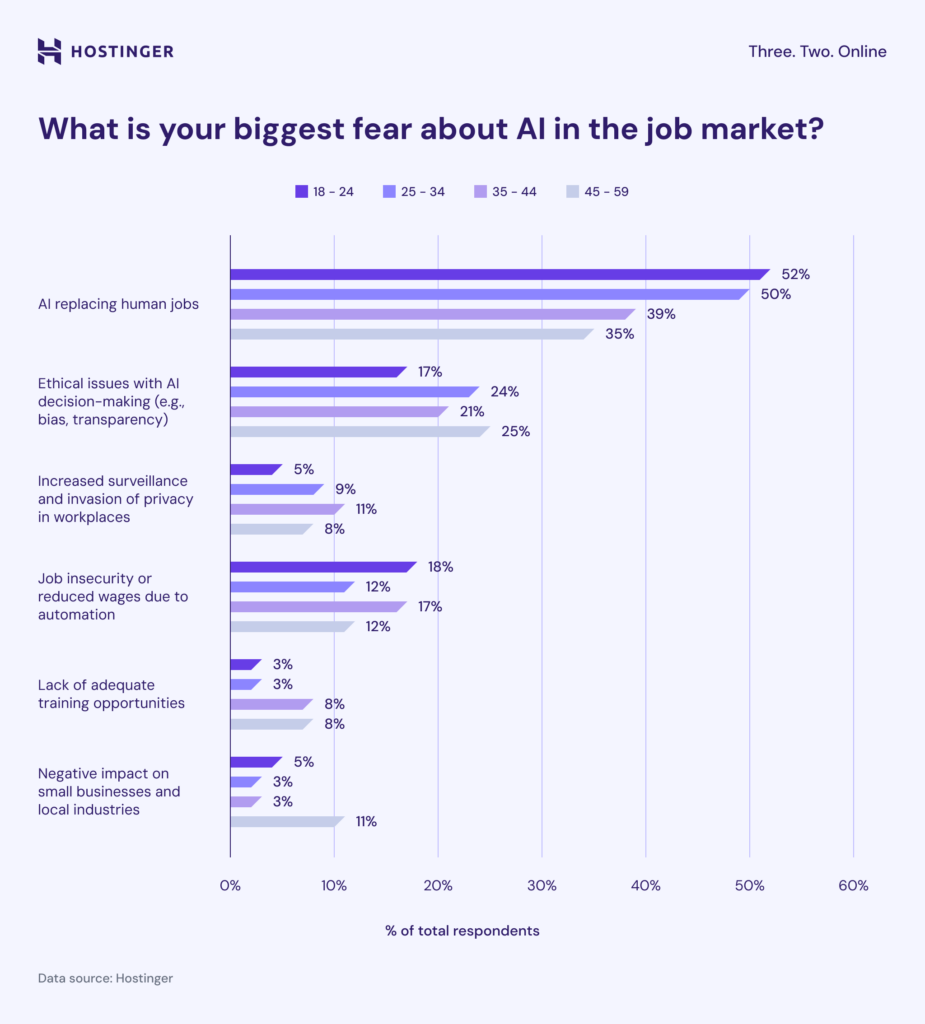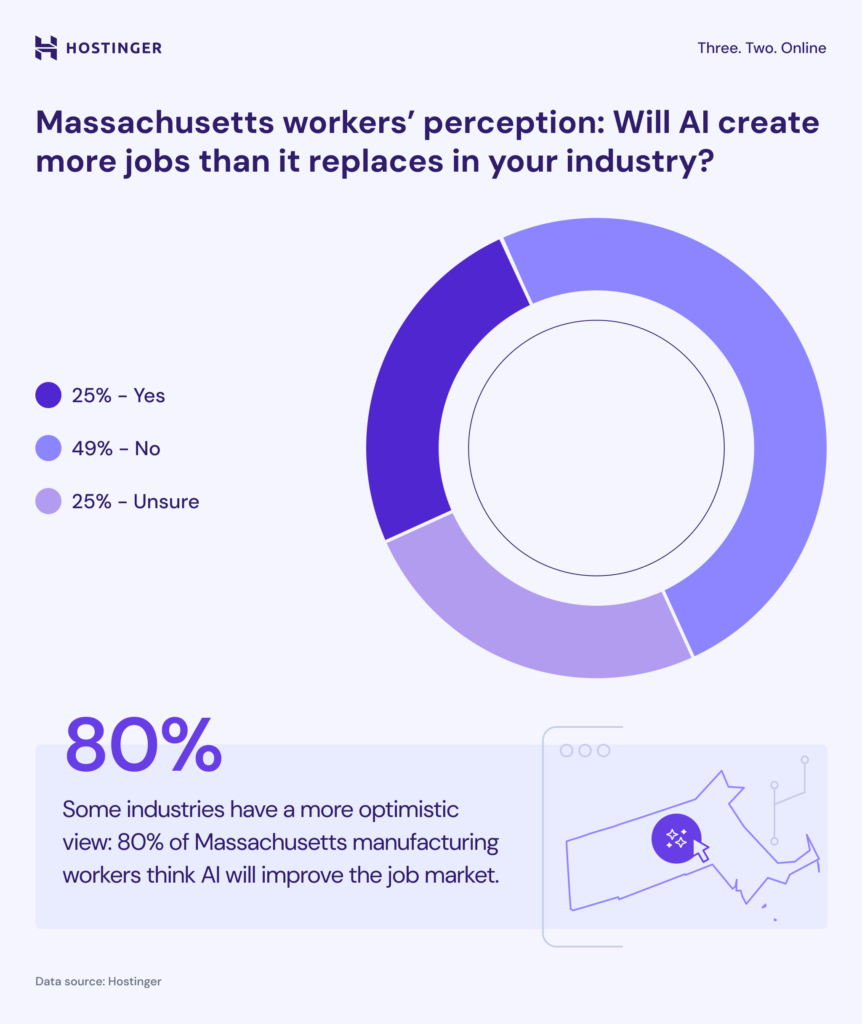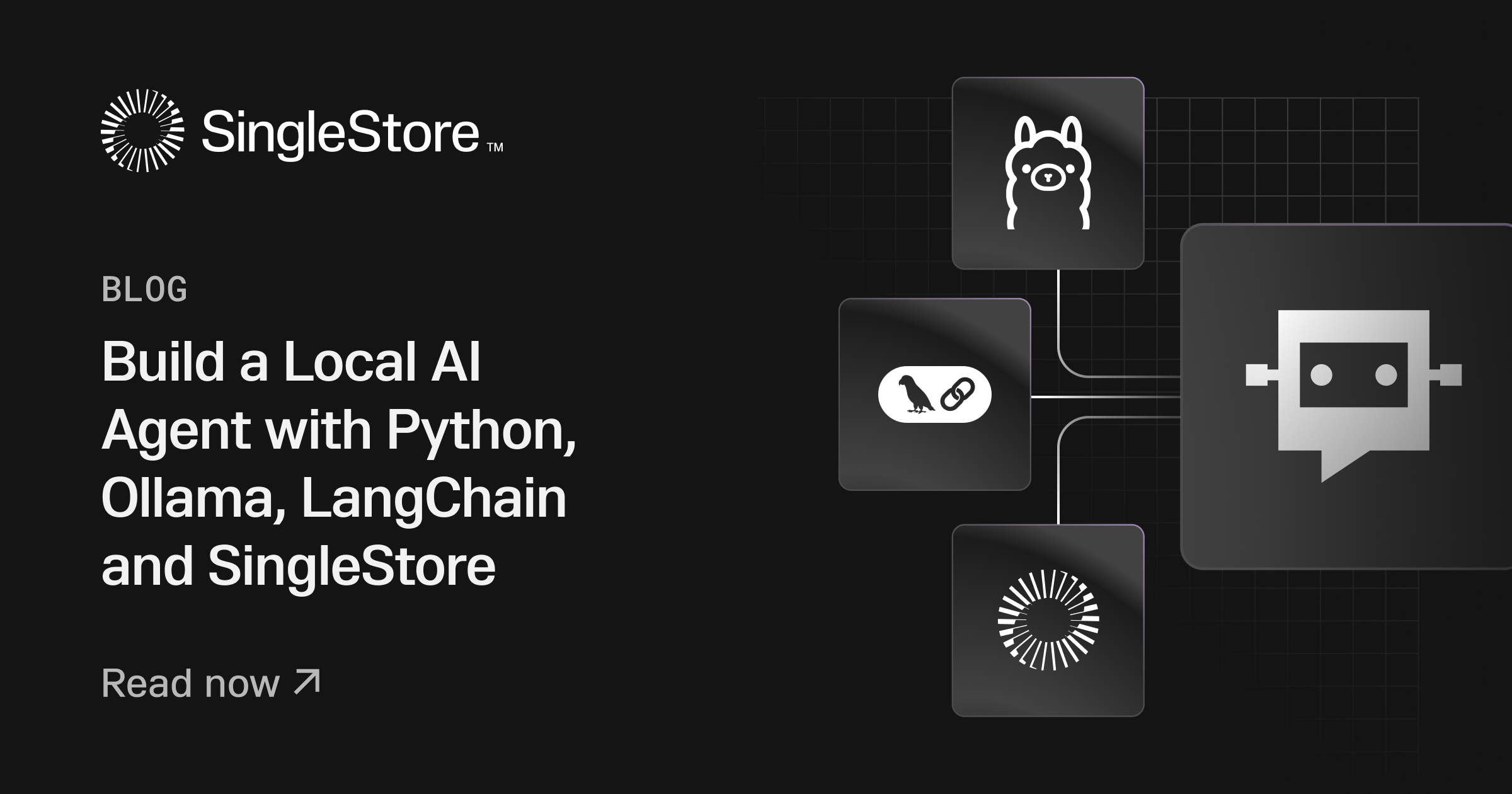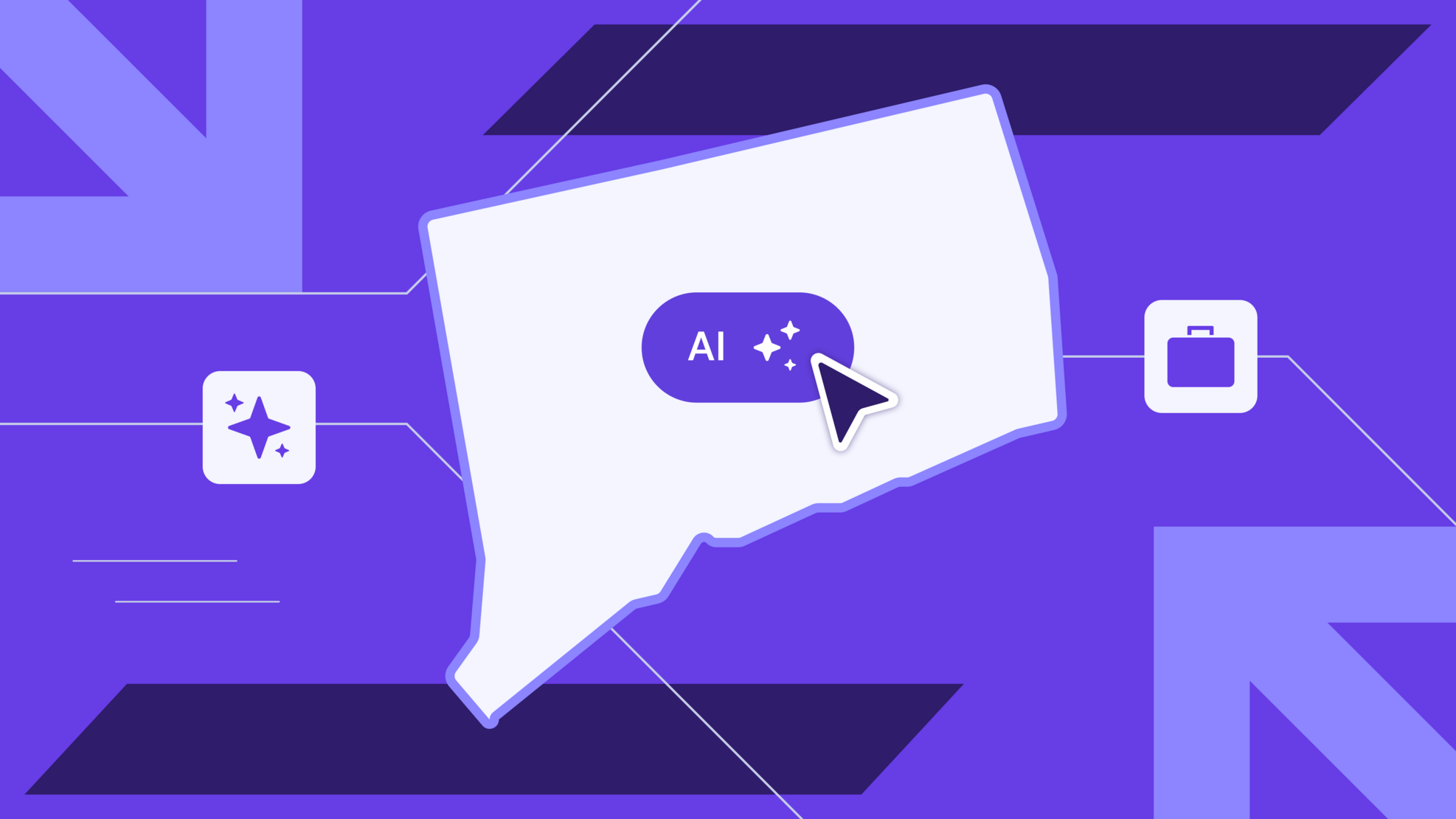It’s time for an artificial intelligence (AI) impact reality check. Hostinger looked at key results from a survey about workers’ perceptions of the impact AI is expected to have on the Massachusetts job market.
The survey explored employees’ concerns about how AI will affect skills, knowledge, advancement, regulation, and the job market in general.
- Workers’ most shared fear: AI taking your job
- Time to learn about AI
- Are workers comfortable with AI?
- Fear of AI? Most are taking action to learn and adapt
- How is AI’s influence on jobs perceived?
- 80% of manufacturing workers are optimistic about AI
- AI is advancing fast
Workers’ most shared fear: AI taking your job

Of the topics in the survey, the primary fear among Massachusetts workers is that AI will replace human jobs. 42% of respondents worry technology will replace humans in certain roles. The survey reveals a greater fear among younger workers compared to older ones, as 52% of workers aged 18-24 and 50% of those aged 25-34 view this as a major issue. However, this falls to 35% among those aged 45 to 59.
For respondents in this New England state, ethical issues and reduced wages rank as the second and third most prevalent concerns.
Time to learn about AI
In Massachusetts, 57% of workers agree on the need to learn new tools and technologies driven by AI adoption. This majority consensus exists across respondents’ industries.
More than 60% of workers in finance (including insurance), manufacturing, IT services, real estate, and tourism recognize the need for further education about artificial intelligence.
Workers in several industries not intrinsically related to tech and digital transformation tend to express doubt about the necessity of adding AI skills to their resumes. More than half of workers from the creative arts and design, nonprofits and social services, and retail aren’t planning to add more AI-related skills.
Are workers comfortable with AI?
Dozens of AI tools are available online. Since OpenAI’s ChatGPT launched in 2022, AI user growth has increased daily. 31% of workers in the Bay State believe they know more about artificial intelligence than the average person. Only 7% consider themselves experts in the field. The rest, six out of 10 respondents, claim they know the basics of artificial intelligence.
Fear of AI? Most are taking action to learn and adapt
The data reveals that workers who fear job displacement by AI recognize the need to adapt. More than half (56%) of the workers with this fear believe in learning new AI skills.
Besides, 65.5% of those who fear AI could replace them at work asserted they know the basics, and 31% expressed ‘knowing more than an average person’ about AI.
Workers with this concern are primarily in the following sectors:
- Healthcare (15%)
- IT (13%)
- Finance (11%)
- Retail (11%)
- Non-profits/social services (10%)
“AI is changing the way we perform numerous job tasks. Workers across various industries will likely welcome streamlined processes and increased automation. However, it is crucial for everyone to acknowledge the learning curve involved, which should be viewed not as an insurmountable obstacle, but as a challenge to foster new and improved solutions,” states Povilas Krikščiūnas from Hostinger.
How is AI’s influence on jobs perceived?
Hostinger’s survey examined sentiment regarding AI’s potential effect on jobs. Only one out of four respondents believes AI will create more jobs than it replaces in any industry. Conversely, participants reported:
- 49% believe artificial intelligence will not create new jobs
- 25% are unsure about it
This trend remained consistent across all age groups and most industries.
Massachusetts-based manufacturing and IT workers express a more optimistic view regarding AI’s impact on future job creation. Specifically, 54% of manufacturing and 46% of IT workforces believe AI will generate more jobs than it will replace.
When looking at various age groups, people between 35 and 44 argue that AI will have a positive effect on the job market. On the other hand, nearly 40% of young adults aged 18-24 and those between 45 and 54 are unsure about what the impact will be. People between 25 and 34, however, are equally divided between groups who believe in a better, worse, or unknown scenario.
80% of manufacturing workers are optimistic about AI

Four out of five workers from the manufacturing industry expressed optimism that AI will improve the job market, and the majority of IT workers (60%) believe the same. Those from other industries look at AI’s role in the job market as uncertain or clearly negative.
On average, 39% of workers in Massachusetts believe this new technology will create better job opportunities, while 28% predict it will have a negative impact and 33% expressed uncertainty.
AI is advancing fast
Finally, the study inquired about the speed at which AI is advancing and the period of adaptation that workers will have to contend with. 55% of respondents believe artificial intelligence is advancing too rapidly for workers to adapt.
Overall, it is believed that AI will significantly impact jobs, and that workers’ adaptability will significantly shape the future of most industries. In periods of uncertainty, people’s motivation and perception may influence a faster or slower progression.
Massachusetts’s business and economic environment clearly exemplifies trends in ‘white-collar’ states. In the ‘Bay State,’ employees working in industries with no ‘blue-collar’ jobs represent nearly 75% of the state’s total workforce. According to the US Census Bureau, Massachusetts’s employment rate is 64%, and the median household income is $99,858 per year. Although it is one of the smallest states in the country, these numbers are above the national averages.
Methodology
- The study gathered 400 responses during the first two months of 2025 and is part of the Decoding Trends series of short studies led by Hostinger.
- Take a look at the answers here.
The post Decoding Trends: What Massachusetts workers think about AI’s impact on their jobs appeared first on Hostinger Blog.




